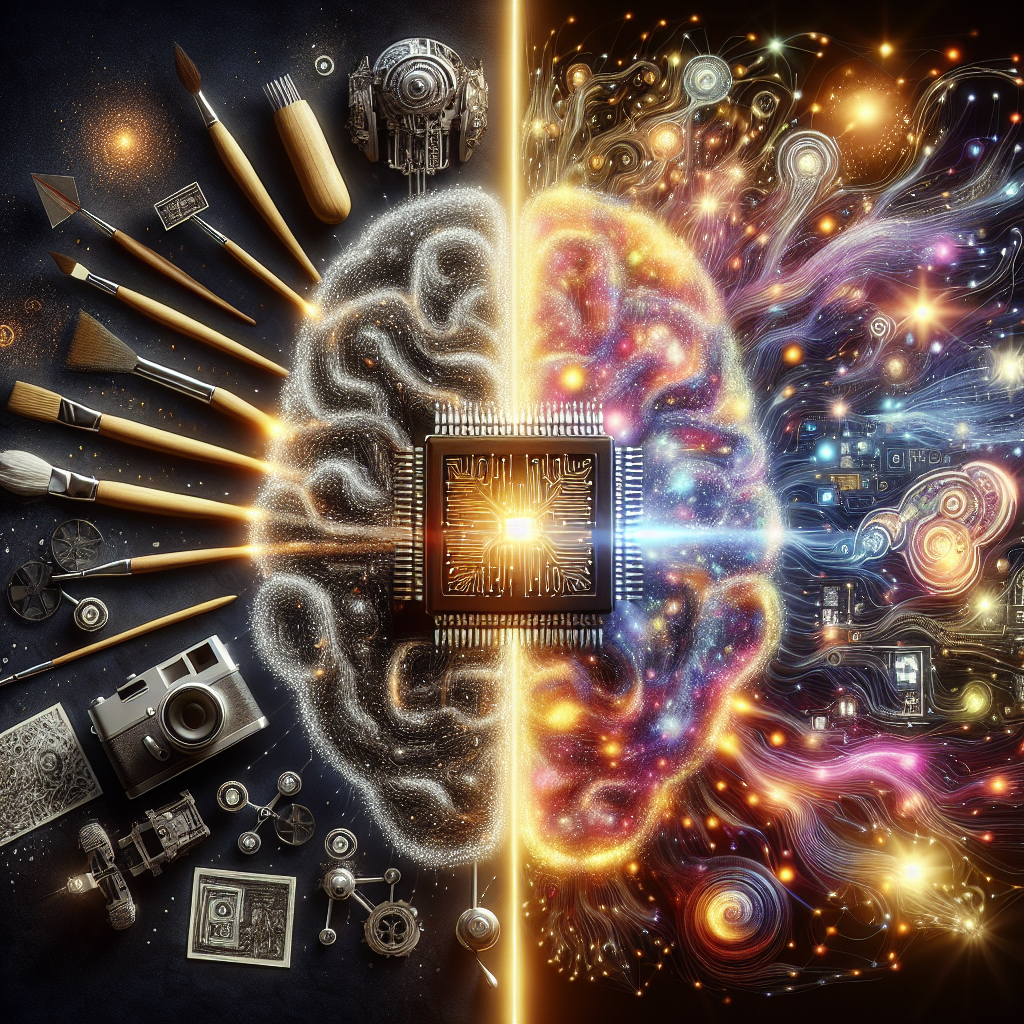Artificial Intelligence (AI) has been making waves in various industries, transforming the way we work and interact with technology. One area where AI is having a significant impact is in the creative industries. From music composition to film production, AI is revolutionizing the creative process and challenging traditional notions of artistry. In this article, we will explore the impact of AI on creative industries, the opportunities it presents, and the challenges it poses.
AI in Music Composition
One of the most prominent examples of AI in the creative industries is in music composition. AI algorithms are now able to generate music that is indistinguishable from that created by human composers. Companies like Amper Music and Jukedeck are using AI to create personalized music for videos, commercials, and other media projects. AI can analyze data on musical patterns and create original compositions based on that information. This has the potential to revolutionize the music industry by providing a new way for artists to create and distribute their work.
AI in Film Production
AI is also making its mark in the film industry, particularly in the realm of visual effects and animation. Companies like Weta Digital, which worked on films like Avatar and The Lord of the Rings, are using AI to create stunning visual effects that were previously impossible to achieve. AI algorithms can now generate realistic depictions of characters and environments, making the production process faster and more cost-effective. This has the potential to change the way films are made and the way audiences experience storytelling.
AI in Graphic Design
AI is also being used in graphic design to create logos, advertisements, and other visual content. Companies like Canva and Tailor Brands are using AI algorithms to generate design ideas based on user input. This has the potential to democratize the design process, allowing non-designers to create professional-looking graphics with ease. AI can also analyze data on design trends and user preferences to create customized designs that resonate with target audiences.
AI in Writing
AI is even being used in the realm of writing, with companies like Grammarly and AI Writer developing tools that can generate written content based on user input. These tools can help writers improve their grammar, style, and tone, making the writing process more efficient and effective. AI can also analyze data on language patterns and generate original content that is tailored to specific audiences.
Opportunities and Challenges
While AI presents many opportunities for the creative industries, it also poses challenges. One of the main concerns is the potential for AI to replace human creativity. As AI algorithms become more sophisticated, there is a fear that they will be able to generate art and music that is indistinguishable from that created by humans. This raises questions about the value of human creativity and the role of artists in a world dominated by AI.
Another challenge is the potential for AI to perpetuate biases and stereotypes. AI algorithms are only as good as the data they are trained on, and if that data is biased, the algorithms will produce biased results. This has implications for the representation of diverse voices in creative industries and the potential for AI to reinforce existing power structures.
FAQs
Q: Will AI replace human creativity in the creative industries?
A: While AI has the potential to generate art and music that is indistinguishable from that created by humans, there is still a role for human creativity in the creative industries. AI can assist artists and designers in generating ideas and streamlining the creative process, but ultimately, human creativity is unique and irreplaceable.
Q: How can AI be used to enhance creativity in the creative industries?
A: AI can be used to enhance creativity in the creative industries by providing tools and resources that help artists and designers generate new ideas and streamline the creative process. AI algorithms can analyze data on trends and user preferences to create customized content that resonates with target audiences.
Q: What are the ethical implications of using AI in the creative industries?
A: The ethical implications of using AI in the creative industries include the potential for AI to perpetuate biases and stereotypes, the impact on the representation of diverse voices, and the question of who owns the rights to AI-generated content. It is important for companies and creators to consider these ethical implications and work towards creating a more inclusive and equitable creative industry.
In conclusion, AI is having a profound impact on the creative industries, revolutionizing the way art, music, film, and design are created and consumed. While AI presents many opportunities for innovation and efficiency, it also poses challenges in terms of ethics and the role of human creativity. As the creative industries continue to evolve in the age of AI, it is important for artists, designers, and creators to embrace the possibilities of AI while also considering its implications for the future of creativity.

